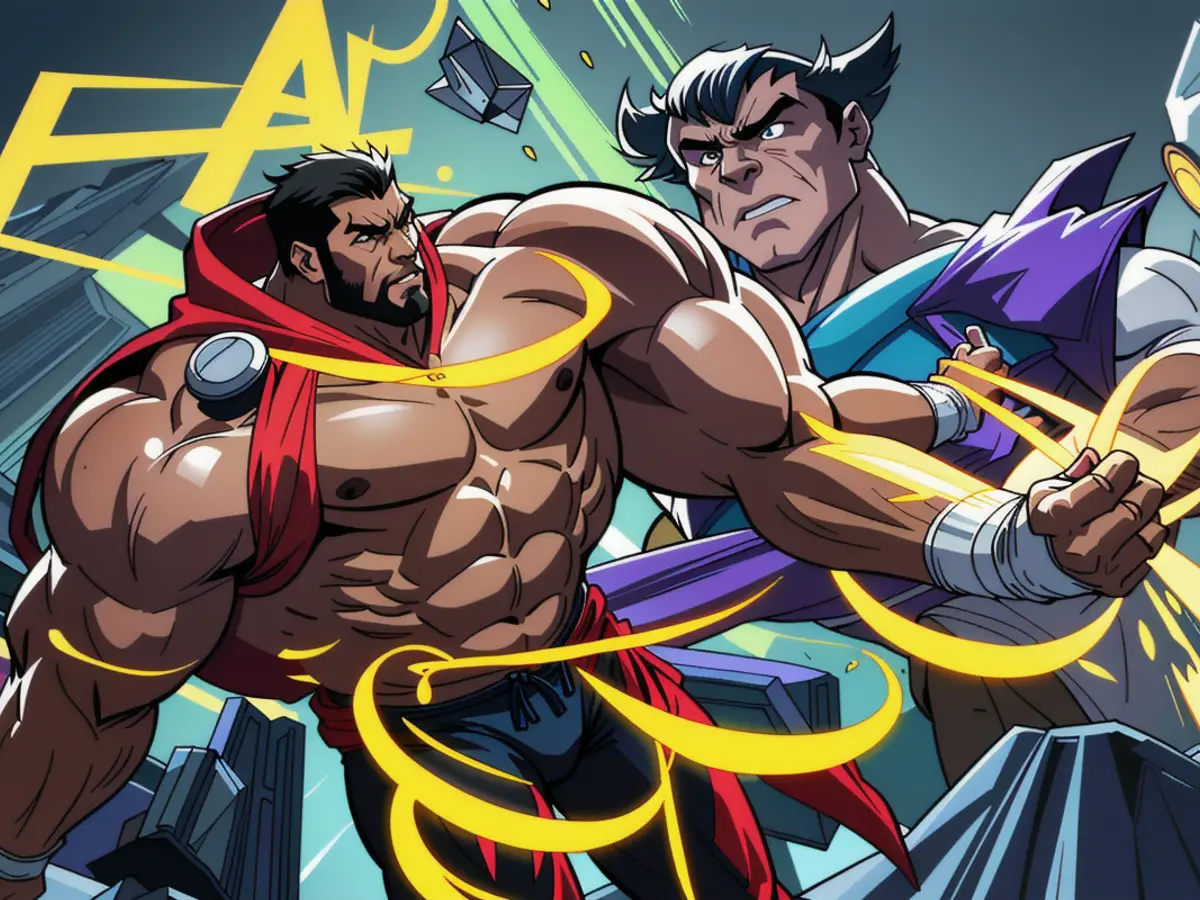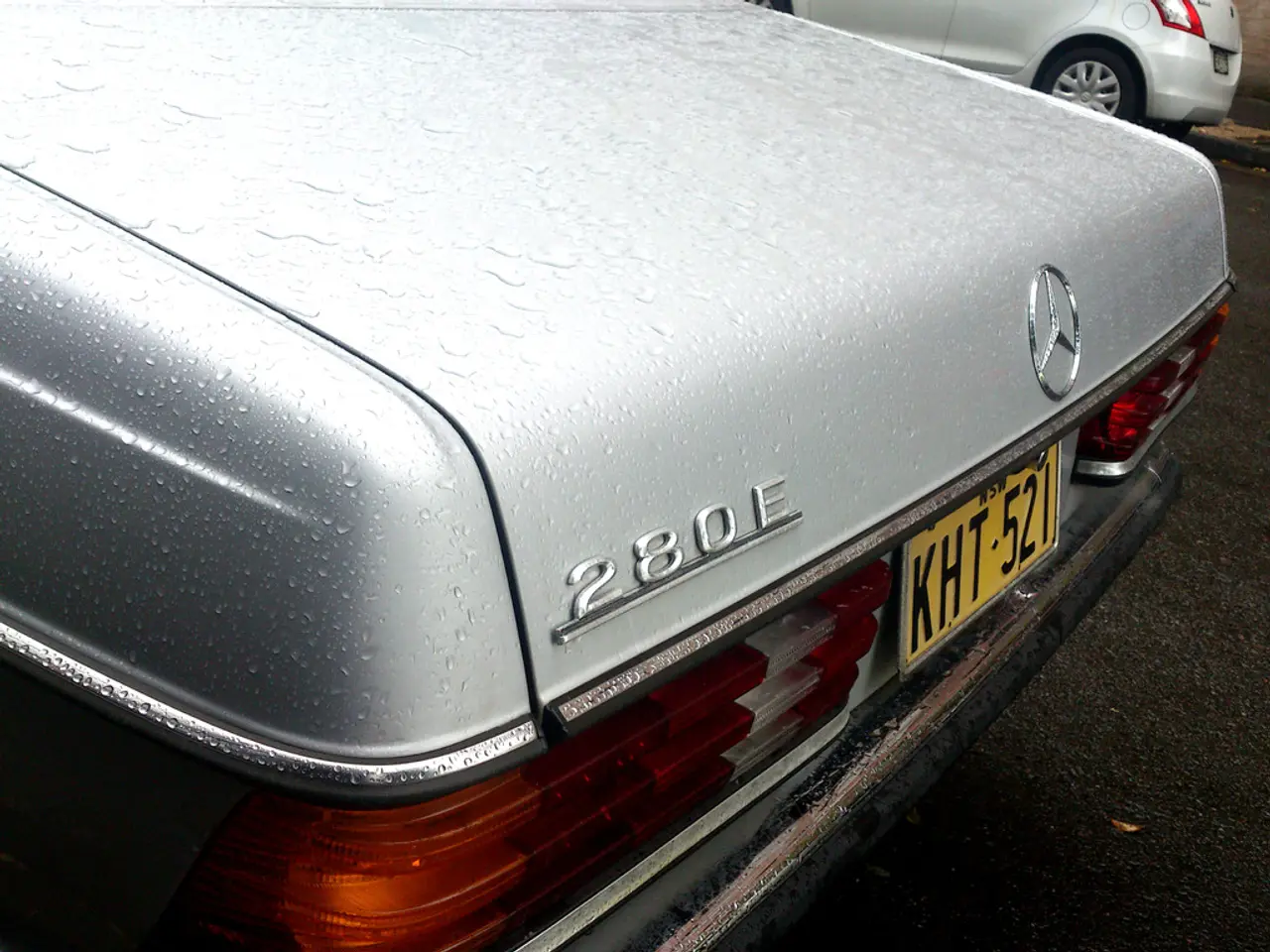Headline
Tencent's Shares Tumble after Being Blacklisted by the Pentagon
Tencent and CATL Battle Pentagon's Addition to Unfriendly List over Military Allegations
Outline
- Trouble in Paradise
- Tencent Suffers Significant Share Drop
- CATL Also Loses Ground
- The Accusations
- Pentagon's Allegations against Tencent
- CATL also under the Microscope
- Defiant Reactions
- Tencent's Denial and Reconsideration
- CATL's Firm Response
- Diplomatic Backlash
- China Responds to US's List
- Marco Rubio's Past Calls for CATL Blacklisting
- Background and Enrichment Insights
- The Controversial Concept of "National Security"
- Impact on the Companies' Operations and Reputation
- Global Supply Chain Shakeups
Trouble in Paradise
Chinese internet titan Tencent and battery manufacturer CATL felt the heat after they were included in a Pentagon list of alleged Chinese military companies. This unexpected addition saw a displeased response from their authorities over in China, while their American counterparts remain firm on the issue. Tencent's Hong Kong-listed shares plummeted by 7.28% to $48.82, while CATL's shares also dropped by nearly 3%.
The Accusations
The Pentagon's latest update to its list of Chinese military firms includes Tencent and CATL, with a total of 134 entities that have allegedly been participating in the military's unlawful activities. This list intends to discourage American companies from dealing with these blacklisted firms, possibly influencing future Pentagon contracts.
Defiant Reactions
Tencent maintained its innocence in a regulatory statement, asserting that it is neither a Chinese military company nor a contributor to its military-civil fusion program. CATL echoed this stance, claiming they have never engaged in any military-related business or activities. Both companies have pledged to work towards removing their inclusion from the list, whether through reconsideration processes or legal proceedings if necessary.
Diplomatic Backlash
China's Foreign Ministry spokesperson, Guo Jiakun, spoke out against the US's new list, depicting it as an overreach of US's notion of national security and discrimination toward Chinese companies. Sen. Marco Rubio, the US's pick for Secretary of State, previously advocated for CATL's blacklisting, alleging its deep ties to the Chinese Communist Party and its armed wing.
Background and Enrichment Insights
The US views these military ties as a threat to its national security, leading to this unprecedented list. Both Tencent and CATL's businesses in the US pose dilemmas meriting scrutiny. Tencent's popular app, WeChat, was previously targeted by Trump, while CATL plays a central role in the global electric vehicle supply chain. The unfriendly treatment could lead to several consequences, including reputational damage and potential complications for future contracts.
- Amidst the controversy, Tencent and Chinese tech giant Tencent Holdings Limited, which owns a significant stake in Tencent, have expressed their disagreement with being included on the Pentagon's 'blacklist' of Chinese military companies, like Tencent's rival, Tencent-backed digital finance platform Ant Group.
- Similarly, battery manufacturer CATL, which has partnerships with tech giants such as Tencent and Tesla, has refuted the Pentagon's allegations, stating that it does not conduct any military-related business or activities, joining other Chinese military companies like Huawei and ZTE on the Blacklist.








